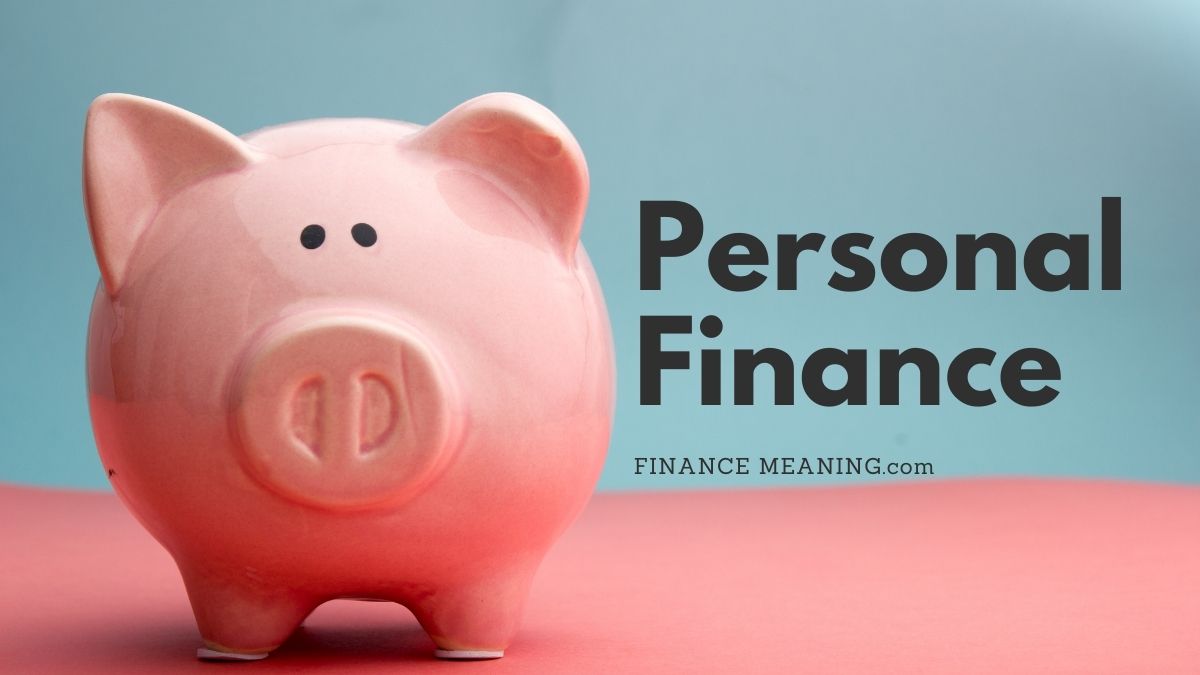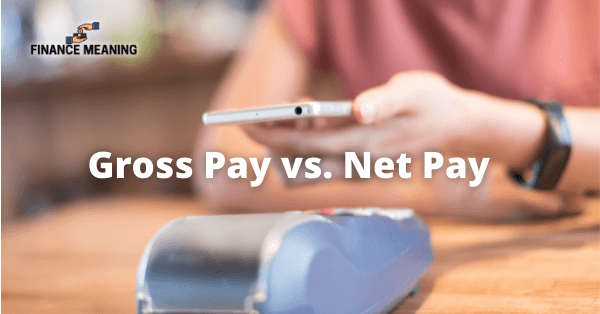Navigating personal finance is a journey towards financial stability and independence. It’s a path paved with knowledge, discipline, and strategic planning. Whether you’re just starting out or looking to refine your financial acumen, understanding the essentials of personal finance is crucial. This article dives into the core aspects of managing your money, providing a comprehensive guide to help you understand your finances and make informed decisions for a prosperous future.
Key Takeaways
- Personal finance management is a fundamental skill for achieving financial security and independence, accessible to everyone.
- Financial literacy and education are the cornerstones of making informed and effective financial decisions.
- Emergency funds are a critical safety net for financial security, protecting against unforeseen expenses.
- Strategic budget management and debt handling are essential for setting and reaching financial goals.
- Investing in savings and understanding growth opportunities are key for long-term financial stability and wealth accumulation.
Understanding Personal Finance: The Basics


The Importance of Financial Literacy and Education
Financial literacy is the cornerstone of a secure financial future. It’s about more than just balancing a checkbook or saving for retirement; it’s the ability to make sound financial decisions in a complex economic environment. Financial education empowers individuals to manage money effectively, understand financial products, and navigate the myriad of financial challenges that arise throughout life.
Financial literacy is not innate; it requires education and practice. By prioritizing financial education, we can equip ourselves with the tools necessary to achieve financial independence and security.
A recent survey highlighted that a significant majority of Americans recognize the need for financial education, with 63% wanting to prioritize it. This sentiment underscores the importance of integrating financial literacy into all stages of education and life.
- Understand personal finance basics
- Develop a positive relationship with money
- Make informed financial choices
- Recognize the impact of financial decisions
Incorporating financial literacy in schools can be transformative. It provides a structured approach to learning about money, from budgeting to investing, and prepares students for the financial realities of adulthood.
Key Financial Concepts Every Beginner Should Know
Grasping key financial concepts is crucial for anyone starting their journey in personal finance. Budgeting is the cornerstone of effective money management, allowing individuals to monitor their income and expenses to ensure they live within their means.
Financial literacy is not just about knowledge; it’s about building a positive relationship with money and understanding the impact of financial decisions. It’s the skill set that enables you to plan, save, invest, and navigate taxes effectively.
Mastering these money skills is essential for achieving financial stability and long-term success.
Here are some fundamental concepts to get you started:
- Planning and creating a budget
- Saving for emergencies and future goals
- Understanding and managing debt
- Making informed investment choices
Remember, a strong financial foundation is built on education and the application of these principles.
The Role of Emergency Funds in Financial Security
An emergency fund is essential for maintaining financial security and peace of mind. It is a dedicated account used to cover unexpected expenses, such as medical bills, home repairs, or sudden job loss. This fund acts as a financial buffer, preventing the need to incur debt during crises.
- Start by saving a small, manageable amount each month.
- Gradually increase your contributions as your budget allows.
- Aim for three to six months’ worth of living expenses.
Having this fund in place ensures that you can navigate life’s surprises with confidence. It’s not just about having the money set aside; it’s about the freedom and security it provides. An emergency fund allows you to make decisions based on what’s best for you, not just your immediate financial needs.
Building a robust emergency fund is a cornerstone of personal finance. It’s the safety net that catches you, allowing you to recover without derailing your financial future.
Setting Financial Goals: The First Step to Success


Tips for Effective Budget Management
Effective budget management is the cornerstone of sound financial health. Regularly reviewing and tracking expenses is crucial to staying aligned with your financial objectives. Utilizing budgeting tools and apps can greatly enhance the efficiency of managing your finances.
To begin, calculate your monthly income and choose a budgeting method that suits your lifestyle. The 50/30/20 rule is a simple framework to start with: allocate 50% of your income to necessities, 30% to wants, and 20% to savings and additional debt repayment. Consistent tracking and regular check-ins are vital to ensure you’re on the right path.
Remember, the goal of budgeting is not to restrict your spending but to empower you to make informed financial decisions.
Adjust your budget as needed to reflect changes in income, expenses, and priorities. Even small savings can accumulate significantly over time. Look for opportunities to cut discretionary spending and negotiate lower bills to boost your savings rate.
Managing Debt and Credit Wisely
Debt can be a double-edged sword. When used strategically, it can pave the way to achieving significant milestones, such as funding an education or buying a home. Yet, when debt is mismanaged, it can become a relentless burden, stifling financial growth. To navigate this landscape, it’s imperative to distinguish between constructive and destructive debt.
Constructive debt, like student loans or mortgages, represents an investment in your future, potentially leading to greater wealth. On the flip side, destructive debt, often characterized by high-interest rates from credit cards or payday loans, can rapidly become overwhelming. Prioritizing the repayment of high-interest debt is a key step in maintaining financial health.
Effective debt management starts with a clear understanding of all debt obligations, including interest rates and repayment terms. Aim to pay off high-interest debts swiftly, employing strategies such as debt consolidation or refinancing to secure lower interest rates and more manageable repayment schedules.
Before considering balance transfers or debt consolidation, scrutinize the terms carefully. Look out for balance transfer fees and the expiration of introductory rates. For debt consolidation loans, ensure the interest rates and repayment terms are indeed beneficial. Remember, the best way to avoid credit card debt is to pay your balance in full each month and spend within your means.
Utilizing Balance Transfers and Debt Consolidation
When faced with high-interest debt, strategies like balance transfers and debt consolidation can be a lifeline. By transferring debt to a card with a lower interest rate, you can save on interest payments and simplify your monthly bills. Consolidating multiple debts into one loan can also streamline your finances and may offer a lower combined interest rate.
Before diving into these options, it’s crucial to scrutinize the terms. For balance transfers, be aware of any fees and the duration of the low-interest period. With consolidation loans, compare interest rates and repayment plans to ensure they align with your financial goals.
Here are some factors to consider when evaluating these strategies:
- Potential savings on interest payments
- Fees associated with balance transfers
- Impact on credit score
- Simplification of monthly payments
- Long-term financial implications
Remember, these tools are most effective when used as part of a broader financial plan focused on reducing debt and increasing savings.
Credit Management: Building and Maintaining Your Score


How to Use Credit Cards Responsibly
Responsible credit card use is pivotal for maintaining financial health. Paying your bill in full each month is a cornerstone of credit card wisdom, ensuring you avoid costly interest charges and keep your credit score robust. It’s also crucial to understand the impact of your credit utilization ratio, which should ideally stay below 30% of your total available credit.
- Understand your spending: Track your expenses to ensure you’re not charging more than you can afford.
- Set up alerts: Use your card’s alert system to notify you when you’re approaching your credit limit.
- Review statements: Regularly check your statements for errors and to keep tabs on your spending habits.
By adhering to these practices, you can leverage the benefits of credit cards, such as building a positive credit history and earning rewards, without succumbing to the pitfalls of debt accumulation.
Remember, while rewards and cashback offers are enticing, they only benefit you if you’re not carrying a balance that accrues interest. Discipline in spending and diligent management of your accounts are the keys to using credit cards to your advantage.
Understanding Your Credit Score
Understanding your credit score is crucial for financial health. Your credit score is a reflection of your creditworthiness and influences many aspects of your financial life. It’s important to know what factors contribute to your score and how you can affect them.
Credit scores are primarily based on your credit history, with several key factors playing a role in its calculation. Here’s a breakdown of what contributes to your FICO score:
- Payment history (35%)
- Amounts owed (30%)
- Length of credit history (15%)
- Credit mix (10%)
- New credit (10%)
A FICO score ranges from 300 to 850, with higher scores indicating better credit. The ratings are as follows:
- Exceptional: 800 to 850
- Very good: 740 to 799
- Good: 670 to 739
- Fair: 580 to 669
- Poor: 579 and below
Monitoring your credit score is an ongoing process. It requires regular review of your credit report and responsible financial behavior. By keeping track of your credit, you can identify any inaccuracies or areas for improvement, and take action to maintain or enhance your score.
Preventing Identity Theft
In the digital age, identity theft is a growing concern that can have devastating effects on your personal finances and credit score. To safeguard against this threat, it’s crucial to take proactive steps. Regularly monitoring your credit report is one of the most effective measures you can take. Federal law entitles you to free annual credit reports from the major bureaus: Equifax, Experian, and TransUnion.
By keeping a close eye on your credit activities, you can quickly detect any unauthorized or suspicious transactions. This vigilance allows you to act swiftly in addressing potential fraud.
Here are some additional steps to enhance your protection against identity theft:
- Set up direct debiting for bills to avoid missed payments.
- Subscribe to services that provide regular credit score updates.
- Consider credit freezing as a means to lock down your credit reports.
- Stay informed about the latest security practices and threats.
Navigating Loans and Debt


Paying Off Student Debt
With $1.59 trillion of consumer debt tied up in student loans, it’s clear that managing and paying off this debt is a significant concern for many. Prioritizing student loan repayment is not just about making monthly payments; it’s about understanding the various strategies that can lead to financial freedom more quickly.
One effective approach is the debt avalanche method, which involves paying off loans with the highest interest rates first. This method can save you money over time by reducing the amount of interest that accrues on your principal balance. Additionally, refinancing high-interest loans can lead to more favorable terms and lower interest rates, making repayment more manageable.
Keeping expenses low is another crucial strategy. By minimizing living costs and discretionary spending, you can allocate more funds toward your student loan debt, accelerating the payoff process.
Exploring federal repayment programs can also provide relief. Options such as graduated repayment, extended repayment, and income-driven repayment plans can adjust your monthly payments to better fit your financial situation. Remember, the goal is to only borrow what you can comfortably repay, to avoid financial strain in the future.
Navigating Student Loans: Repayment and Forgiveness Options
For many, student loans are a gateway to higher education but also a source of financial stress post-graduation. Understanding your repayment options is crucial to managing this debt effectively. Federal student loans offer a variety of plans tailored to different financial situations, including income-driven repayment plans that adjust monthly payments based on your income and family size.
It’s essential to consider the long-term implications of each plan. For instance, while extending the repayment period can lower monthly payments, it may result in higher total interest paid over the life of the loan. Conversely, income-driven plans may offer loan forgiveness after a certain number of years, but they require annual income verification and may lead to taxable forgiven amounts.
Making informed choices about student loan repayment can significantly impact your financial well-being. It’s not just about making monthly payments, but also about understanding how these payments fit into your broader financial plan.
Remember, some professions may qualify for loan forgiveness programs, which can be a substantial financial relief. Always stay informed about the latest changes in student loan policies to take advantage of any new opportunities that arise.
Investing in Your Future: Savings and Growth


Savings and Investment Strategies for Beginners
Building wealth requires a strategic approach to saving and investing. Harnessing the power of compound interest and familiarizing ourselves with different investment options can set us up for long-term financial success.
Saving involves setting aside a portion of your income for future needs and emergencies. Aim to build an emergency fund that covers three to six months’ worth of living expenses. Investing allows your money to grow over time through compound interest and appreciation.
When starting your investment journey, consider these popular strategies:
- Buy and hold
- Buy index funds
- Index and a few
- Income investing
- Dollar-cost averaging
Remember, even saving a small amount consistently can lead to significant growth over time. Explore different saving vehicles, such as savings accounts and CDs, and automate your savings to ensure steady growth.
Conclusion
As we wrap up our journey through the essentials of personal finance, it’s clear that understanding and managing your money is a fundamental skill that can lead to financial independence and security. From grasping the basics of budgeting and saving to making informed decisions about credit, debt, and investments, personal finance is a comprehensive field that touches every aspect of our lives. Whether you’re a beginner or looking to refine your financial strategies, the knowledge and tips shared in this article serve as a valuable guide. Remember, financial literacy is not just for the wealthy; it’s an accessible and vital tool for everyone. By setting realistic goals, educating ourselves, and staying disciplined with our financial plans, we can all navigate the path to a more secure and prosperous future.
Frequently Asked Questions
What are the core concepts I should understand in personal finance?
The core concepts in personal finance include budgeting, saving, investing, managing debt, and understanding credit scores. These foundational elements help you build a strong financial future.
Why is financial literacy and education important?
Financial literacy empowers you to make informed financial decisions, manage your money effectively, and achieve financial stability and independence. Education in this area is crucial for long-term success.
How do I start setting financial goals?
Begin by assessing your current financial situation, determining your short-term and long-term objectives, and creating a realistic and actionable plan to achieve those goals through budgeting and saving.
What strategies can I use to manage my debt wisely?
To manage debt, prioritize high-interest debts, consider balance transfers to lower interest rates, use debt consolidation carefully, and maintain timely payments to avoid additional fees and penalties.
How can I build and maintain a good credit score?
To build a good credit score, use credit cards responsibly, make payments on time, keep credit utilization low, monitor your credit report for errors, and avoid opening too many new accounts at once.
What are some basic investment strategies for beginners?
Beginners should start with a clear investment goal, educate themselves on investment options, diversify their portfolio, start with low-risk investments, and consider long-term growth potential.





